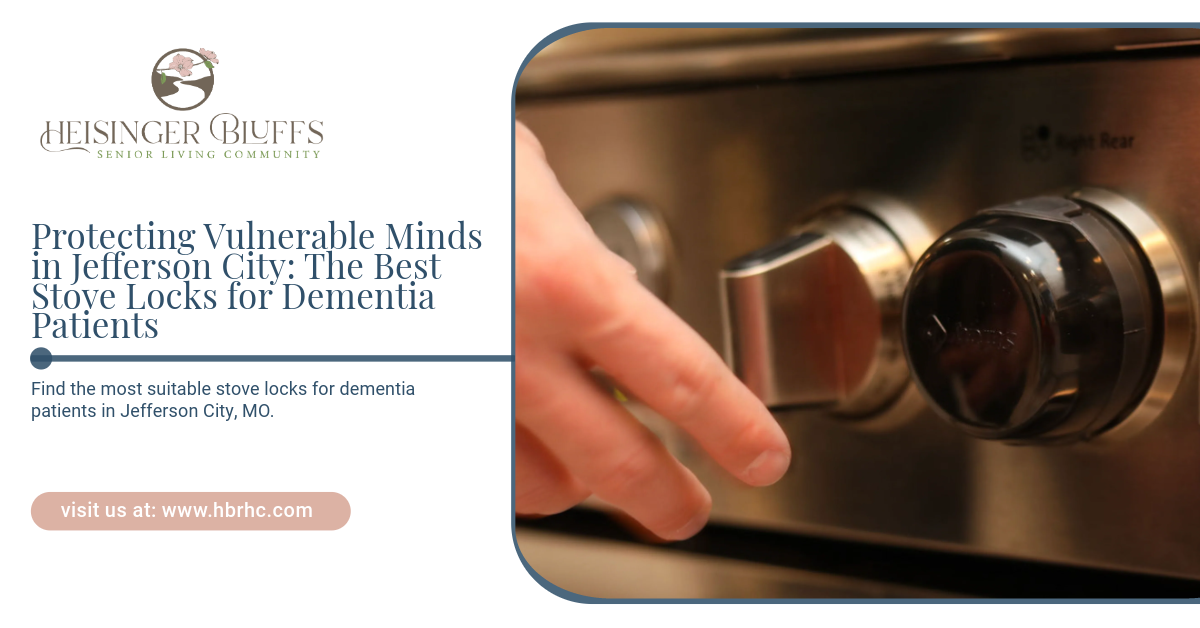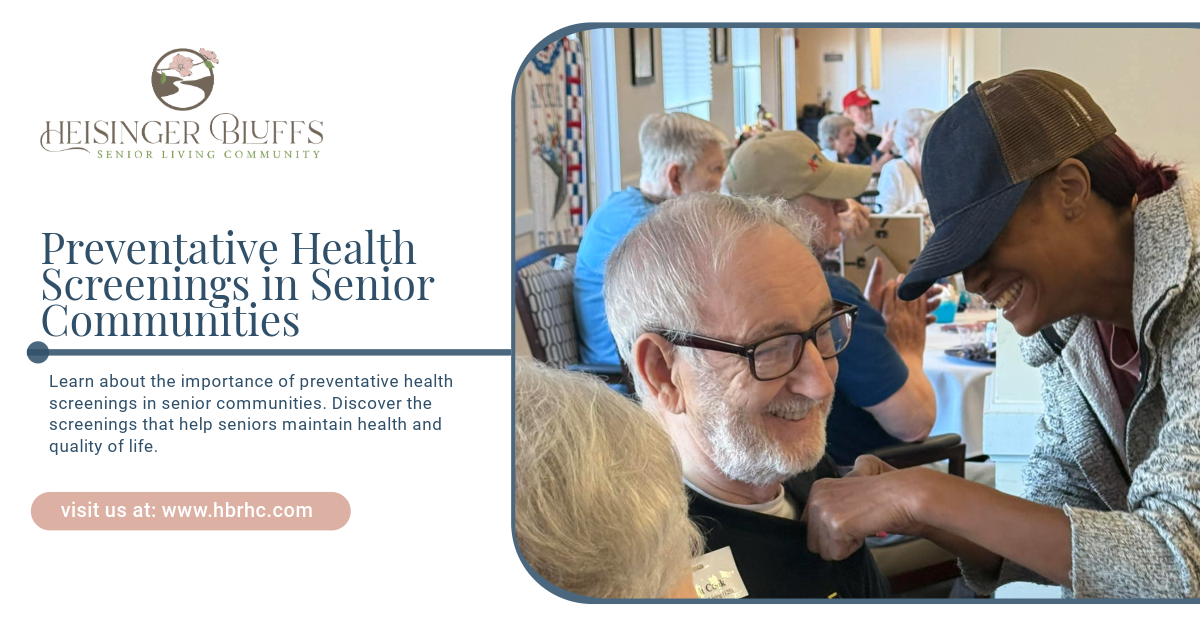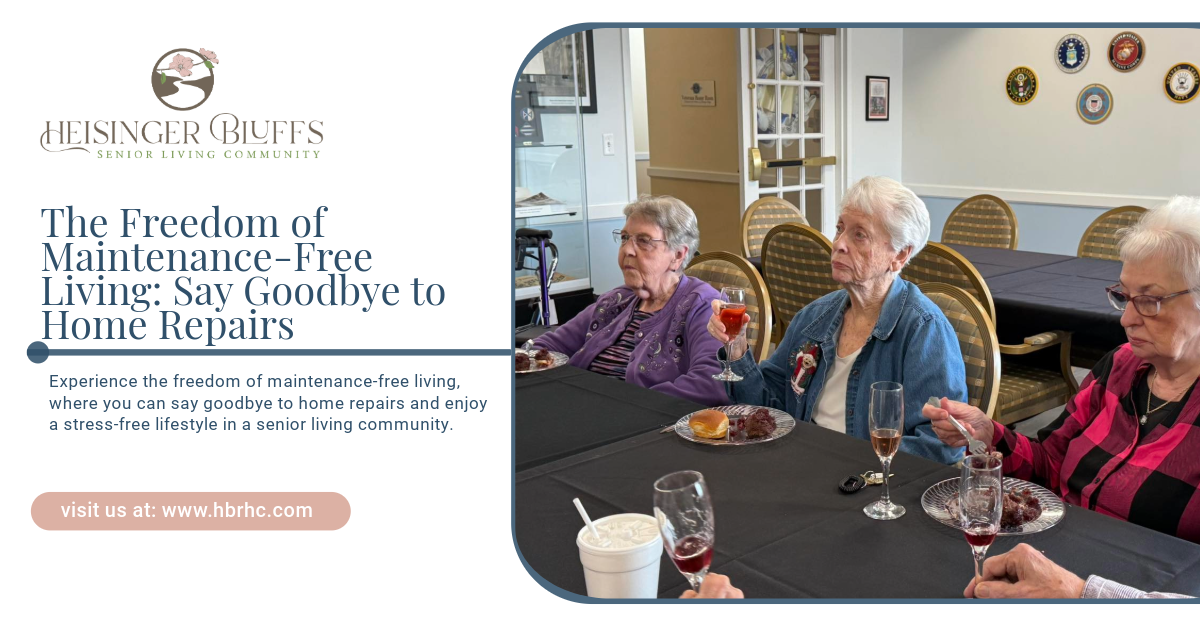The Best Stove Locks for Dementia Patients in Jefferson City

Caring for a loved one with dementia presents unique challenges, especially when it comes to ensuring their safety at home. One area that requires particular attention is the kitchen, where common appliances like stoves can become dangerous if used improperly. Individuals with dementia may forget that the stove is on or misinterpret how to operate it, leading to the risk of fires, burns, or other accidents.
Fortunately, stove locks and other safety devices can significantly reduce these risks and protect those with cognitive impairments. In this blog, we’ll explore the best stove locks and other safety measures to ensure a safer kitchen environment for dementia patients in Jefferson City.
The Importance of Kitchen Safety for Dementia Patients
Dementia impacts cognitive abilities, including memory, problem-solving, and reasoning. In the kitchen, this can manifest in several potentially dangerous behaviors:
- Leaving the stove on: Individuals may forget to turn off the stove, which could lead to fire hazards.
- Accidentally turning on burners: They may unintentionally switch on a burner without realizing it, creating a risk of burns or fires.
- Improper use of kitchen appliances: Confusion about how to operate the stove can lead to improper use and dangerous situations.
Stove locks and other safety devices offer solutions that protect vulnerable individuals while giving caregivers peace of mind.
Types of Stove Locks for Dementia Patients
There are several types of stove locks designed to prevent dementia patients from accidentally turning on or misusing the stove. Below are some of the most effective options.
1. Stove Knob Covers
Stove knob covers are one of the simplest and most affordable solutions for preventing dementia patients from turning on the stove. These covers are placed over the stove knobs, making them difficult to turn without removing the cover. Most covers require a specific unlocking mechanism, which is generally easy for caregivers to use but difficult for individuals with cognitive impairments.
Advantages:
- Inexpensive and easy to install.
- Compatible with most gas and electric stoves.
- Prevents accidental activation of burners.
Disadvantages:
- Does not prevent someone from turning on the stove if they manage to remove the cover.
- Some models may be too easy for patients to figure out if they are still cognitively active.
2. Stove Knob Locks
Stove knob locks are more secure than knob covers. These locks replace the original knobs with locking versions, which require a key or a specific mechanism to unlock and turn the stove on. This is especially useful for patients who have a tendency to tamper with knob covers or who are at a higher risk of kitchen accidents.
Advantages:
- Provides a high level of security, as a key or special tool is required to operate the stove.
- Durable and designed to withstand tampering.
Disadvantages:
- Caregivers need to carry a key or keep the unlocking tool nearby.
- Installation can be more complicated than knob covers.
3. Stove Shut-Off Devices
Stove shut-off devices are highly effective in preventing stove accidents by automatically shutting off the stove after a set period or when certain conditions are met, such as if the stove has been left on for too long. Some models are also equipped with sensors that detect smoke, gas leaks, or high temperatures, automatically cutting off the stove’s power in case of danger.
There are two main types of stove shut-off devices:
- Timer-based shut-off devices: These devices work by turning off the stove after a pre-programmed amount of time.
- Sensor-based shut-off devices: These detect potentially dangerous conditions, such as unattended cooking or gas leaks, and automatically cut off the power.
Advantages:
- Offers maximum safety by automatically turning off the stove.
- Provides peace of mind for caregivers, as it ensures the stove won’t stay on for too long.
- Some models include smartphone alerts for added convenience.
Disadvantages:
- More expensive than other stove safety solutions.
- Installation may require a professional.
4. Magnetic Stove Knob Locks
Magnetic stove knob locks are an innovative option that combines ease of use for caregivers with a high level of security for dementia patients. These locks replace traditional stove knobs with magnetically operated knobs, which only turn when a special magnetic key is placed on them. Without the key, the knobs cannot be operated, preventing the stove from being turned on accidentally.
Advantages:
- Easy for caregivers to use while being nearly impossible for dementia patients to operate.
- No need to remove knobs or covers to use the stove.
- Sleek and unobtrusive design.
Disadvantages:
- Caregivers must keep track of the magnetic key.
- May not fit all stove models.
Additional Kitchen Safety Tips for Dementia Patients
In addition to installing stove locks, there are other measures you can take to create a safer kitchen environment for a loved one with dementia. Here are some additional tips:
1. Remove or Disable Unnecessary Appliances
If possible, remove or disable appliances that aren’t frequently used, such as toaster ovens or microwaves, which can also pose a fire risk. For essential appliances, consider installing safety switches or unplugging them when not in use.
2. Install Smoke and Carbon Monoxide Detectors
Make sure your kitchen is equipped with working smoke and carbon monoxide detectors. These detectors will alert you if there’s a fire or gas leak, providing additional protection in case of an emergency. Some detectors can be connected to smart home systems, sending alerts directly to caregivers’ phones.
3. Use Fireproof Materials
Consider placing fireproof mats near the stove and using fire-retardant curtains, kitchen towels, and other fabrics in the kitchen. This adds an extra layer of protection in case of a fire.
4. Create a Safe Cooking Environment
If the person with dementia still enjoys cooking, create a safe environment by setting up a routine where they can participate in food preparation under supervision. Provide them with simple tasks, such as washing vegetables or setting the table, that allow them to remain involved without being near the stove.
5. Lock Away Sharp Objects and Dangerous Substances
Knives, scissors, and other sharp objects should be securely stored in locked drawers or cabinets. Similarly, keep cleaning products, chemicals, and other hazardous substances out of reach or in locked storage to prevent accidental poisoning.
6. Use Childproof Locks for Cabinets and Drawers
Childproof locks can be installed on cabinets and drawers to prevent access to potentially dangerous items like sharp utensils, cleaning supplies, or heavy pots and pans.
Choosing the Right Stove Lock for Your Loved One
When selecting the best stove lock for a dementia patient, consider the following factors:
- Cognitive ability: How advanced is the patient’s dementia? Can they still manipulate simple locks or covers, or do they need a more secure option?
- Ease of use: How easily can caregivers operate the lock? Some stove locks may require tools or keys, while others offer simpler solutions like magnetic knobs.
- Type of stove: Ensure that the stove lock you choose is compatible with the specific type of stove in your home, whether it’s gas or electric.
- Level of supervision: Does the patient require constant supervision in the kitchen, or can they be left alone for short periods? This will help determine whether a basic lock or a more advanced shut-off device is needed.
Conclusion
Ensuring kitchen safety for dementia patients is crucial for preventing accidents and protecting their well-being. Stove locks are an essential tool for creating a secure environment, allowing caregivers in Jefferson City to rest easier knowing their loved ones are safe. From knob covers to advanced shut-off devices, there are various options available to meet different needs and provide peace of mind.
At Heisinger Bluffs, we understand the unique challenges faced by caregivers of dementia patients. Our community is dedicated to providing a safe, supportive environment for seniors with cognitive impairments. If you need further guidance on kitchen safety or other protective measures, feel free to contact us for more information.
Frequently Asked Questions
Can stove locks be used on both gas and electric stoves?
Yes, most stove locks are designed to be compatible with both gas and electric stoves. However, it's essential to verify the specific model of the lock to ensure it fits your stove type.
How do I know which stove lock is right for my loved one with dementia?
The best stove lock depends on the patient’s cognitive abilities and the level of supervision they require. Consider factors such as ease of use for caregivers, the patient’s ability to manipulate knobs, and the need for automatic shut-off features.
Are stove shut-off devices reliable?
Yes, stove shut-off devices are highly reliable and are one of the most effective ways to prevent accidents in the kitchen. They are particularly useful for patients with advanced dementia who may forget to turn off the stove.
Sources:
- https://www.ncbi.nlm.nih.gov/books/NBK557444/
- https://forum.alzheimers.org.uk/threads/cooking-safety-concerns.145742/
- https://fasny.com/magazine_articles/rangesafe-safety-knobs-help-prevent-accidental-stove-fires-and-gas-leaks/
- https://www.alzstore.com/fireavert-stove-fire-prevention-p/0106.htm
- https://www.alzheimers.org.uk/about-dementia/symptoms-and-diagnosis/how-dementia-progresses/progression-stages-dementia











